In an age defined by polarised politics and debates over historical legacy, Paul Herzberg’s The Moth set out to challenge its Salford audience last night to examine the intricacies of accountability, forgiveness, and human connection.
As the sun set over Salford Quays last night, theatre lovers were drawn like moths to the flame into an intimate studio at the Lowry to follow the journey of two men whose lives became intertwined following a chance meeting on a train in 1997.
Based on a true story, The Moth – directed by Jake Murray of the Elysium Theatre Group – is the stage show adaptation of Herzeberg’s original monologue of the same title – commissioned by Elysium for their Covid Monologue series in 2020.
The political thriller takes the audience on a journey across 28 years, exploring the complex and unlikely connection between, black British journalist John Josana – played by Faz Singhateh – and Micky Cochrane’s Marius Muller, a white South African ex-soldier.
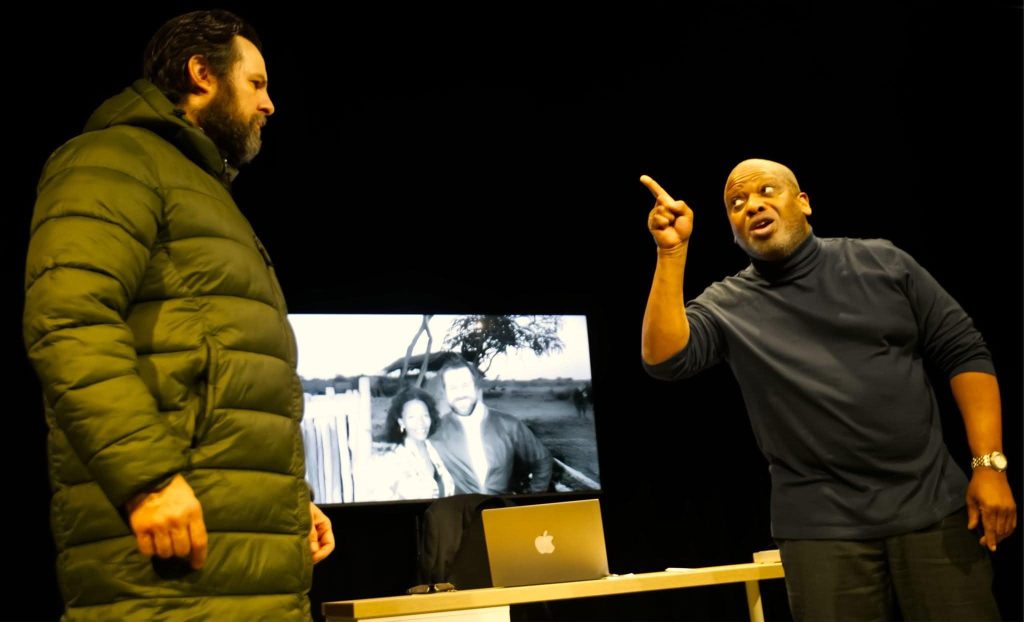
Thematically the two-man show highlights the relevance of historical legacy, with its thought-provoking commentary on the evolution of racism – exploring the brutalities of Apartheid South Africa, juxtaposed against the “insidious” micro-aggressions that remain ever-present in 21st century Britain.
Polished and emotive monologues delivered by both Singhateh and Cochrane encouraged the audience to connect with the characters.
By implicitly asking viewers to participate in judging the delicate balancing of atonement and forgiveness the play showcased the subconscious and implicit political connections which entangle all sections of society across the world.
We saw boundaries blurred and crossed as the relationship between John and Marius began to unfold as the private lives and identities of each man were cross-examined by the other – with messy and vehement confessions spilling out, in a showcase of brutal honesty that only strangers could achieve.
The narrative was well-crafted and the shared geographical, familial, and political threads—absent mothers, connections to Soweto and Germany, and unresolved paternal issues – added a further layer of depth to the fated connection between the pair, obscuring the obvious differences that had first created barriers between the men.
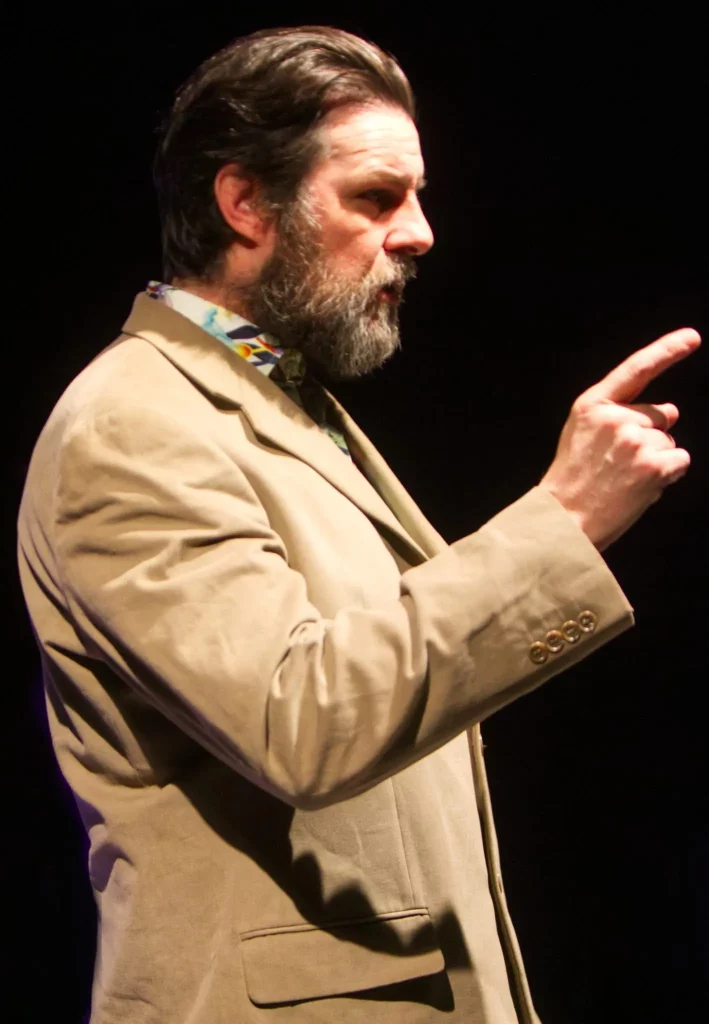
Micky Cochrane as Marius Muller (Image Credit: Victoria Wai)
The intentionally scaled-back set was comprised of a table and two chairs, with a television screen utilised well to provide background scenery.
This decision allowed for the actors to tap into the imagination of the audience – and both Singhateh and Cochrane seamlessly broadened the wider context of the narrative, easily slipping into portrayals of minor characters, delivering the subtext with excellent wordless expression, and commanding the stage in a powerful display of trauma and desperation.
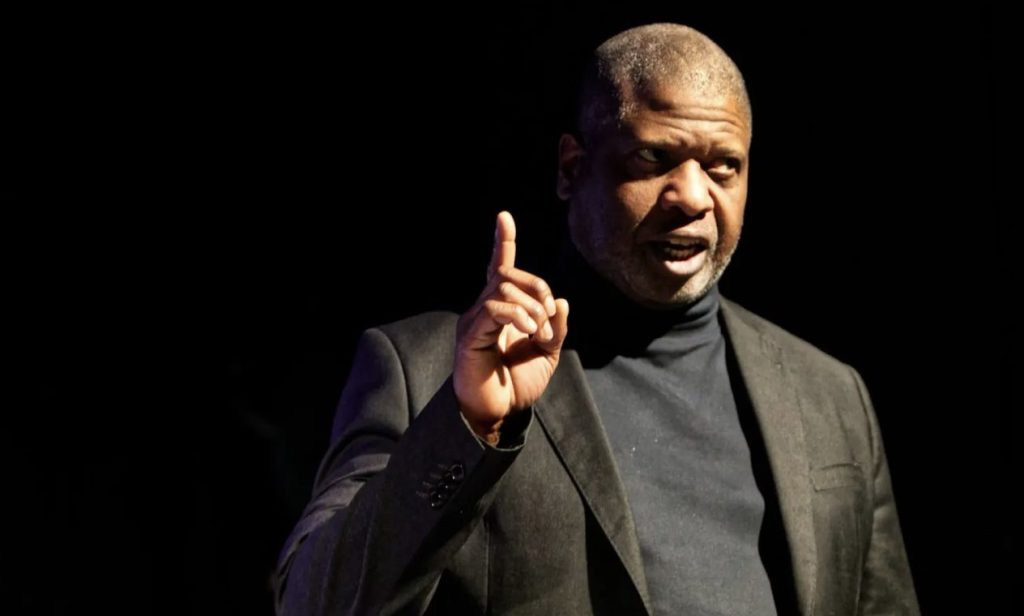
Faz Singhateh as John Josana (Image Credit: Victoria Wai)
It must be noted that Bridgerton star Adjoin Andoh performed beautifully in an emotionally charged monologue for her off-screen role as John’s mother – and a third voice added a welcomed dimension to the Second Act.
Having enjoyed the original monologue – I noticed the adaptation did not pierce the audience in the emotionally harrowing way one might have expected.
The play had injections of comic relief which separated it from the original short film.
The audience visibly struggled at times with this shift between horror and humor, uncertain of their expected emotional response- in particular a joke about Marius’ Nazi father elicited awkwardness as the audience tried to work out whether this was a joke which was meant to break the fourth wall.
Laughter was delayed and stilted in part – but on the whole, this didn’t take from the experience and the crowd seemed to appreciate the intentional nuance of the play’s uncomfortable comedy.
Nonetheless, I felt a longing for more of the trademark intensity which characterised the original short film – and parts of the concluding monologue segment in Act Two would have been far more impactful had they been written with the same gut-punching brevity we saw both actors delivering earlier on.
On the whole, the show was well worth the watch – a welcome reminder of the necessity for active remembrance in our current world, delivered with an unfiltered realism that created an uncomfortable reflection of the cultural conversations of our time.
The Moth will be showing at Salford’s Lowry for one more time tonight – tickets for Saturday, April 12 can be found here: https://thelowry.com/whats-on/255//the-moth
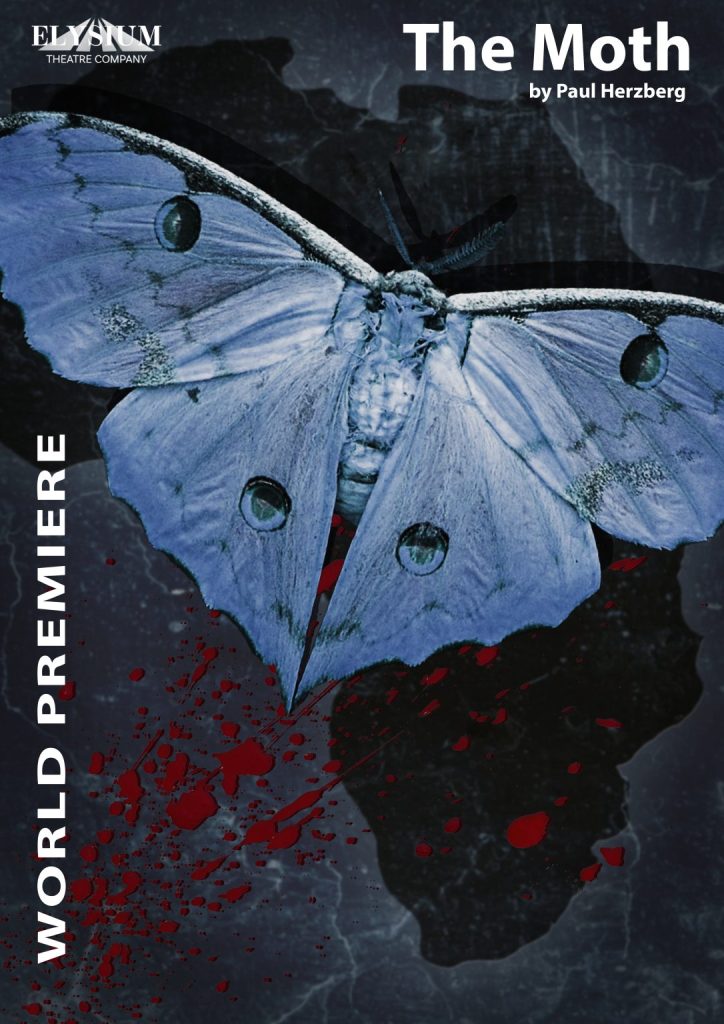
All photographs courtesy of Victoria Wai
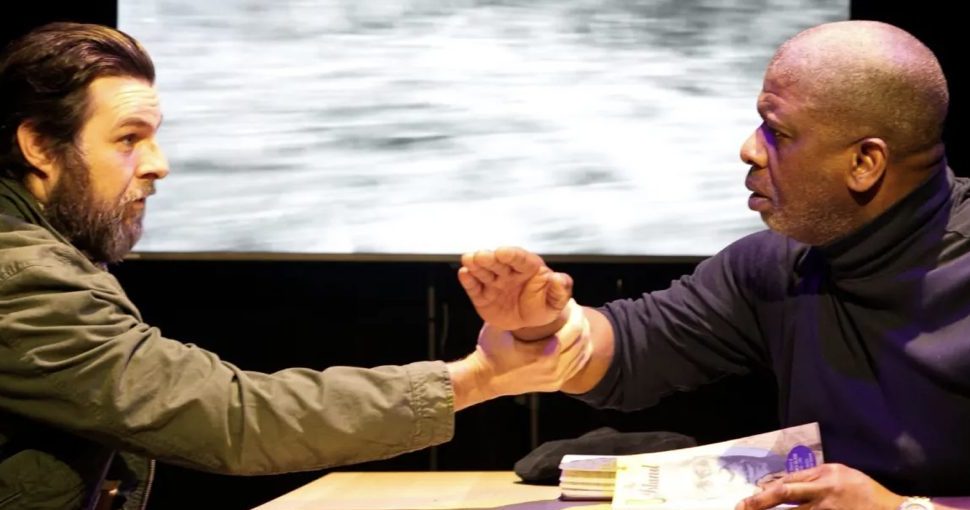




Join the discussion